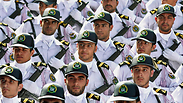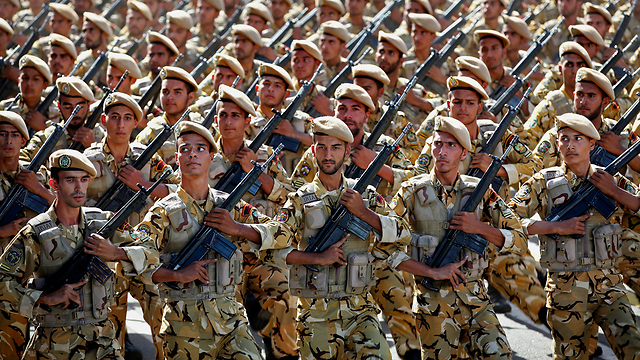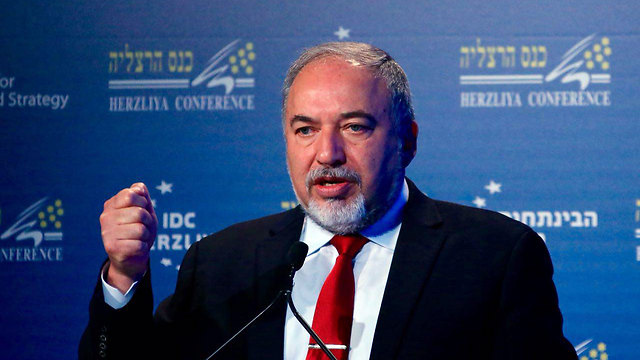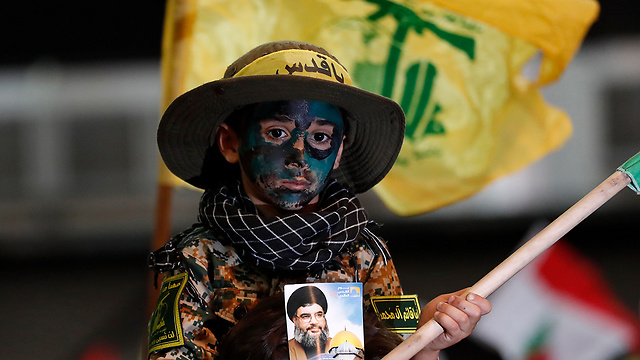
Iran leases air, land and sea bases in Syria
The leases are part of Iranian plan to permanently base fighter aircraft and roughly 5,000 militiamen capable of striking Israel; plan part of larger Iranian strategy to forge territorial and maritime contiguity in the Middle East.
The land base would be an Iranian autonomous base capable of supporting 5,000 Iranian militiamen believed to be mercenaries from Afghanistan and Pakistan under the command of the Iranian Revolutionary Guards.
These steps represent a move by Iran to establish a long-term presence in Syria and pose a threat to Israel.
They also represent an annexation plan by Iran to take control of a series of territory in the Middle East with the goal being to create territorial and maritime contiguity from Iran to Lebanon, Sudan, the Gulf, Saudi Arabia, and on to Iraq and Jordan before reaching the Israeli border.
Intelligence sources in the West note that the Iranian measures are reminiscent of a similar move by the Russians in 2015, in which the Khmeimim airport in Syria was leased, setting up an air force and declaring the region autonomously Russian.
In an interview published Thursday with leading Russian newspaper "Kommersant," Minister of Defense Avigdor Lieberman warned against Iranian entrenchment in Syria.
"The establishment of an air and sea base and the attempt to permanently station 5,000 Shiite fighters on Syrian soil are not acceptable to us, and will have heavy consequences. Iran is attempting to make all of Syria—not just the southwest—into a frontline base against Israel. We will not accept it. We insist that there be no trace of Iranian presence on Syrian soil, and we insist on this arrangement in every settlement," said Lieberman, whose comments were quoted in all major Russian news agencies.
Lieberman officially confirmed in the interview that Iran is pumping $800 million annually into Hezbollah. He also said that Hezbollah was trying to establish a front base in Syria that would threaten Israel.
The defense minister also revealed that American and Russian representatives will soon meet with Israeli representatives in Vienna and will update them on the cease-fire agreements in Syria that were signed between the sides.
"If the details of the agreement provide satisfy us, we will more than welcome the initiative to calm the situation," said Lieberman.
When asked about the Moscow's recognition of the Assad regime as legitimate, Lieberman said that Israel would not intervene or interfere in Syria's internal affairs, except in cases where Israeli sovereignty is violated from within Syria.
"We react when Syrian army shells fall in our territory, but we do not respond apparently strong enough. The Russians would have reacted much more strongly in the same situation…we react forcefully even when we recognize the establishment of a base designed to open another front against us," warned Lieberman.













